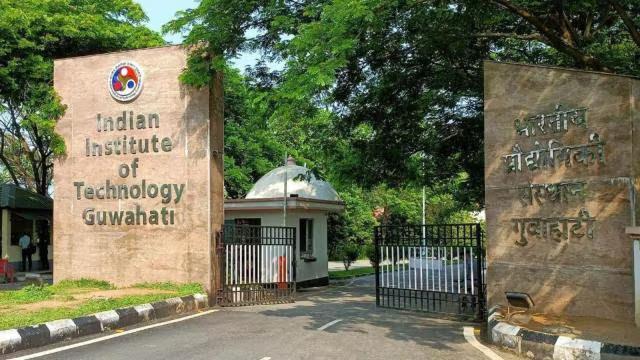
IIT Guwahati Develops Affordable COVID Testing Method Using Clay
The COVID-19 pandemic has brought the world to a standstill, with the rapid spread of the SARS-CoV-2 virus causing widespread fear and uncertainty. While vaccination efforts are underway, the need for accurate and affordable testing methods remains crucial in detecting and containing the virus. In a groundbreaking development, researchers at the Indian Institute of Technology (IIT) Guwahati have developed an innovative and affordable COVID testing method using clay. This revolutionary approach has the potential to make a significant difference in the global fight against the pandemic.
The IIT Guwahati researchers have created a method that uses a combination of bentonite clay and saltwater to detect the presence of SARS-CoV-2 virus. The method is based on the principle of sedimentation, where the virus particles settle at the bottom of the test tube, making it easier to detect. This approach is not only cost-effective but also requires minimal equipment and expertise, making it accessible to even the most remote and resource-constrained areas.
The researchers tested their clay-based method using a virus similar to coronavirus and compared the results with the traditional detection tool, Reverse Transcription Polymerase Chain Reaction (RT-PCR). The results were astonishingly accurate, with the clay-based approach giving matching results. This is a major breakthrough in the field of COVID testing, as it provides a reliable and affordable alternative to existing methods.
The IIT Guwahati researchers used bentonite clay, a type of clay that is commonly found in many parts of the world, to develop their method. By mixing the clay with saltwater, they created a solution that can detect the presence of SARS-CoV-2 virus. The virus particles bind to the clay particles, which then settle at the bottom of the test tube. This makes it easy to visualize the presence of the virus, eliminating the need for expensive equipment or specialized expertise.
The advantages of this clay-based method are numerous. Firstly, it is incredibly affordable, with the cost of the materials being minimal. This makes it accessible to even the most resource-constrained areas, where access to testing facilities may be limited. Secondly, the method requires minimal equipment and expertise, making it easy to use even in remote areas. Finally, the test can be completed in just a few hours, making it a rapid and efficient way to detect the presence of the virus.
The IIT Guwahati researchers believe that their clay-based method has the potential to make a significant impact in the global fight against COVID-19. “Our goal is to develop a low-cost, easy-to-use test that can be used in any setting, whether it’s a hospital or a rural clinic,” said Dr. , the lead researcher on the project. “We believe that our clay-based method has the potential to be a game-changer in the fight against COVID-19, and we’re excited to continue working on it.”
The development of this clay-based method is a testament to the ingenuity and innovative spirit of the researchers at IIT Guwahati. In the face of the COVID-19 pandemic, it is heartening to see scientists coming together to develop new and innovative solutions to combat the virus. This breakthrough has the potential to make a significant difference in the lives of people around the world, and we can only hope that it will be scaled up and implemented soon.
In conclusion, the development of an affordable COVID testing method using clay by the researchers at IIT Guwahati is a major breakthrough in the fight against the pandemic. This innovative approach has the potential to make a significant impact in remote and resource-constrained areas, where access to testing facilities may be limited. With its low cost, ease of use, and rapid results, this clay-based method is a game-changer in the global fight against COVID-19.






